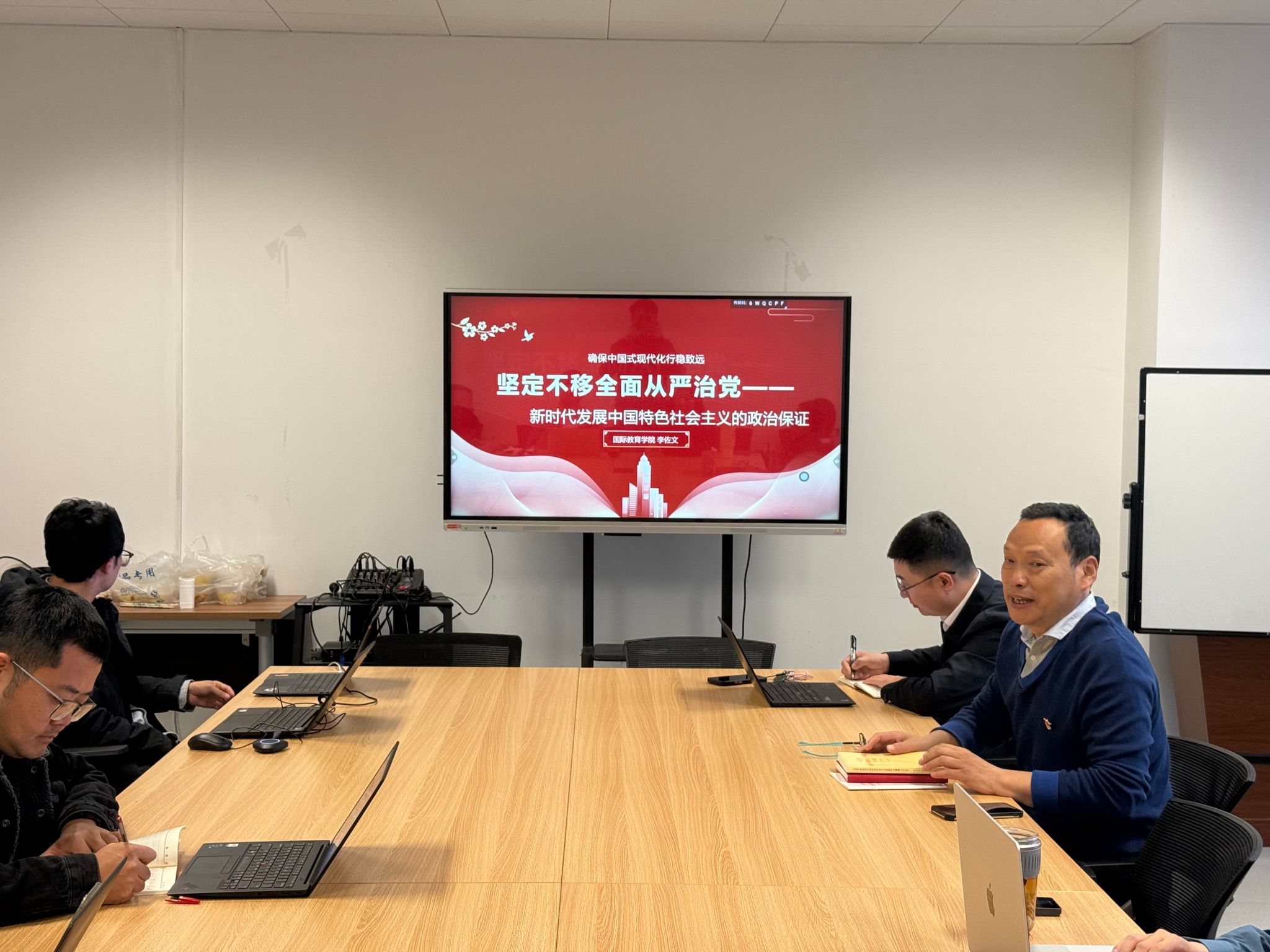On March 11, 2025, the general party branch of Graduate School of Education (GSE) held a collective study meeting of the theoretical learning central group in Conference Room 928, focusing on the theme of “Exercising full and strict governance over the CPC”. Li Zuowen, secretary of the general party branch, presided over the meeting and led the study. Members of the general party branch and the theoretical learning central group participated in the study meeting and delivered speeches.

Li Zuowen led the study with the theme of “Unswervingly Exercising Full and Strict Governance over the CPC-The Political Guarantee for the Development of Socialism with Chinese Characteristics in the New Era”. He introduced the importance of exercising full and strict governance over the CPC, the requirements for it, and the relationship between exercising full and strict governance over the CPC and the development of education.
The participating CPC members reported their learning experiences around this theme. Yuan Dayong, deputy secretary of the general party branch and executive vice-president of the college, said that the construction of the school needs to further unify thoughts, establish rules and regulations, plan for the future, pay close attention to implementation, and continue to make efforts under the leadership of CPC organizations at all levels. Zhu Jun, deputy secretary of the general party branch, said that self-revolution is the magic weapon for the CPC’s long-term governance, and that greater combat effectiveness should be formed through the full and strict governance over the CPC. He also conveyed the work priorities of the school Discipline Inspection Commission for 2025. Other members of the theoretical learning central group reported their learning experiences from the aspects of the construction of teachers’ professional ethics, teachers’ professional identity, student work, and the work style of teacher CPC members.
In the concluding speech, Li Zuowen pointed out that the GSE general party branch will continue to deepen the construction of the CPC’s theoretical learning system, innovate the forms and carriers of learning, and promote the transformation of theoretical learning from a “two-dimensional” to a “three-dimensional” model.